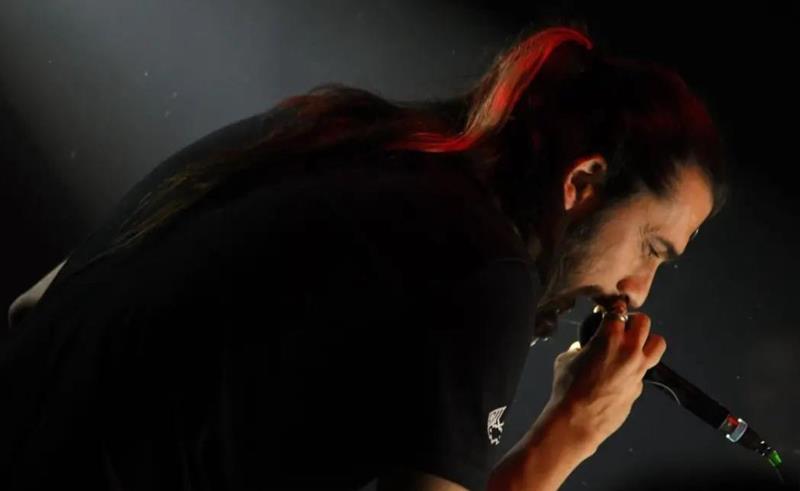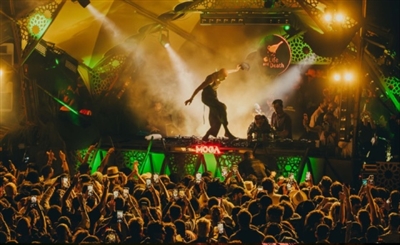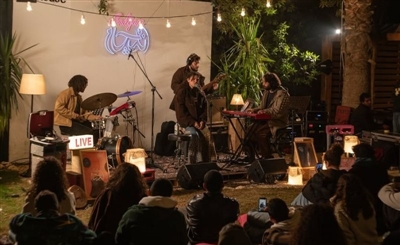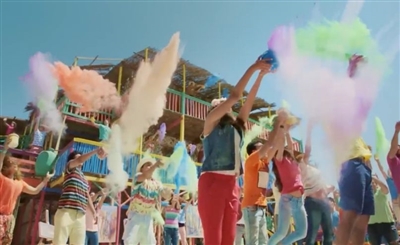Bu Nasser - The Political Rapper on His Euro Tour ‘Safari’
In this SceneNoise interview, the Lebanese rapper talks about his provocative approach to performing in the Western world.

Despite ongoing efforts by political leaders to impose censorship, Lebanese artists have created a resilient space to discuss and protest sociopolitical issues, fostering a prolific and expressive art scene. Since the release of his debut album ‘Land’s Owner’ in 2009, Lebanese author and rapper Bu Nasser Touffar has become widely recognized as a political artist with his anti-establishment attitude and the social commentary that reverberates through his lyrics. His music speaks to the post-war conditions that continued to deteriorate under Lebanon’s political system.
Touffar’s music became a defining feature of Levantine rap, focusing on issues like the reconstruction of downtown Beirut and standing as a symbol of activism in a region where state intimidation often stifles artistic expression. His work usually showcases solidarity with resistance movements across the region, from earlier works focusing on Syria to more recent tracks centred on his homeland. Following the tragic explosion in Beirut in 2020 and the country’s ongoing political crisis, Touffar’s song ‘Tar’ powerfully conveyed his frustration with the Lebanese government.
His lyrical prowess shines through in his wordplay, especially in Arabic. One notable example is his collaboration with Syrian producer Hello Psychaleppo in late 2020, where Touffar cleverly played on the word "hope" which also happens to be the name of a political party, Amal, linked to the corrupt warlords who still hold power in Lebanon. In one line, he raps, “My graveyard is where I lost my life; I only call it home because my family is there. Do you have a light of hope? Enjoy it while you can; tomorrow, the Amal movement will put it out.”
Bu Nasser’s music reflects the long-standing relationship between art and social justice, especially in times of political unrest. Reflecting on his role in Lebanon’s protests, which erupted on October 17th, 2019, Touffar highlights the power of music in uniting people. “When you feel like you don’t belong, a song comes along to remind you that you’re not alone,” Bu Nasser tells SceneNoise. “Your anger and your struggles are shared.”
In 2023, SceneNoise's beloved writer Youssef Armanios caught up with Bu Nasser at Lebanon's alternative music festival, Oakenfest, uncovering the rapper’s influences, the early stages of his career and how he redefined his voice as a political artist, while also sharing some insights into his creative process of songwriting.
Fast forward to September 2024, when we caught up with Bu Nasser once again backstage at his Amsterdam gig during his ‘Safari’ Euro Tour, organised by his label, Beirut Records, to discuss the concept behind the tour as a symbol of political resistance and personal growth. He tells us all about how ‘’Safari’’ serves as a deeply personal journey and a means for him to reclaim his space, both personally and artistically, while also challenging censorship as a political artist. “My music was getting banned and I was being denied visas when travelling to certain places. So, I named my tour ‘Safari’ as a statement of defiance against that,” Bu Nasser says.
‘Backstage’ is SceneNoise’s new series focusing on live performances by regional artists. It highlights the most electrifying moments of a show while capturing the excitement and anticipation that performers experience as they prepare to play for a roaring crowd. In this episode, we take a deeper look at Bu Nasser’s artistic journey and his approach to confronting political systems through his music.
- Previous Article Elyanna’s ‘Ganeni’ Featured on FC25’s Soundtrack
- Next Article Tamino on Mythology, Egypt’s Charm & The Soulful Essence of ‘Sahar’
Trending This Month
-
Jan 29, 2026
-
Feb 20, 2026






















